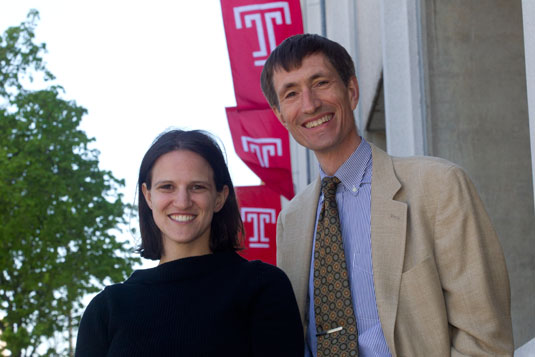Temple-led study finds prolonged bottle use may contribute to childhood obesity

Experts recommend that by 2 years of age children should not be drinking from a bottle, but a national study led by Temple researchers has found that the practice is still common at that age and further, it could contribute to childhood obesity.
In an article published this month in The Journal of Pediatrics, researchers Rachel Gooze, a doctoral candidate in public health, and Robert Whitaker, professor of pediatrics and public health at the Center for Obesity Research and Education, found that children who were using a bottle at 24 months were approximately 30 percent more likely to be obese at 5.5 years, even after accounting for other factors such as the mother’s weight, the child’s birth weight, and feeding practices during infancy.
The researchers analyzed data from 6,750 children enrolled in the Early Childhood Longitudinal Study, Birth Cohort to determine a link between bottle use at 2 years of age and the risk of obesity at 5.5 years of age. Twenty-two percent of the children were classified as prolonged bottle users — that is, at two years of age, they used a bottle as their primary drink container and/or were put to bed with a calorie-containing bottle.
Gooze said practices such as putting a child to bed with a bottle of juice or milk can lead to over feeding. "It is possible that the calories coming from the bottle might be in excess of what the child needs during the day," she said. "For young toddlers, an 8 ounce bottle of whole milk can contain close to 12 percent of their daily caloric intake."
Whitaker notes that over 20 percent of the children in the study were still using a bottle at 2 years old, and in addition to the risk of obesity, this can lead to other health issues such as tooth decay.
"Children may over consume due to the comfort and security that a bottle provides," he said. "But at two years old, calories and nutrients can and should be coming from sources other than a bottle."
The researchers suggest pediatricians and other health professionals work with parents to find acceptable solutions for stopping bottle use around a child’s first birthday.
Sarah E. Anderson, of the College of Public Health at The Ohio State University, is a contributing author on this study. Funding for this research was provided by a grant form the United States Department of Agriculture.